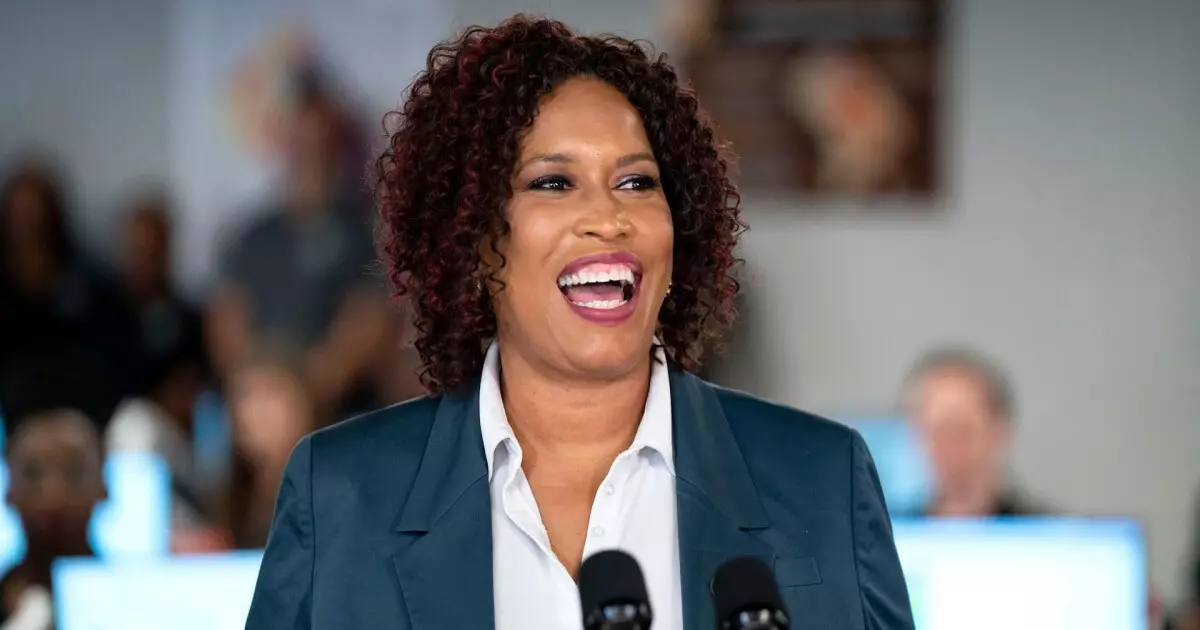5 Urgent Challenges Facing Washington D.C.: A Call for Financial Clarity

In an era where prudence in financial management is not just advisable but essential, the District of Columbia finds itself teetering on the edge of fiscal instability. The recent passage of a continuing resolution in the House has raised valid concerns about the city’s ability to access funds already approved in its budget for fiscal year 2025. Mayor Muriel Bowser openly expressed her apprehension about the situation, which merits serious scrutiny from the electorate and policymakers alike. The urgency is palpable—without prompt intervention, D.C. risks spiraling into a budgetary crisis that could have ripple effects throughout its economy and social services.
The alarming reality is that without the necessary adjustments in Washington, residents may face a stark $1.1 billion fiscal shortfall. This challenge is not merely a bureaucratic hiccup; it has real implications for the lives of tens of thousands of residents and the ongoing survival of businesses that depend heavily on stable city services. Bowser’s call for the House to act expediently reflects a growing frustration with the inefficiencies of the federal machinery. Given that local governance is vital to the everyday lives of citizens, this disruptive delay in accessing funds should not only raise eyebrows but ignite a political firestorm aimed at government accountability.
Fallout from Federal Decisions
The intricate relationship between D.C. and the federal government complicates financial oversight and local governance. The ongoing workforce reductions within the federal sector have introduced significant uncertainty regarding jobs in the capital. With projections suggesting a loss of up to 40,000 jobs in the coming years, the very fabric of D.C.’s economy is at stake. The city is swimming against a tide of federal policy that is constricting economic opportunities at a time when it could be otherwise thriving.
Such a predicament underscores the importance of diversifying D.C.’s economy. Mayor Bowser has rightly emphasized the necessity to not only stabilize but also cultivate new businesses to offset the impending loss of federal employment. The future is uncertain, and any delay in cultivating economic adaptability would be tantamount to negligence from both local and federal authorities.
A Need for Balanced Governance
The necessity for Washington, D.C. to maintain a balanced budget—mandated by law—cannot be overstated. Yet, the recent budget constraints complicate efforts to maintain financial coherence while meeting the growing demands of its citizenry. The mayor’s inability to submit her 2026 budget on time because of the Congressional stalemate highlights a stark procedural flaw that calls into question the efficacy of government systems meant to serve the public good. Local leaders need a more robust framework for financial autonomy, free from the bureaucratic burdens imposed by federal oversight.
While Mayor Bowser has successfully garnered the support of multiple rating agencies, a prudent approach would require immediate corrective actions to avert any potential downgrade, particularly given Fitch Ratings’ negative outlook. Coordination with federal legislators on budget matters should be prioritized to ensure fair financial treatment of D.C., which too often finds itself at the mercy of political maneuvering that has little to do with the realities faced by its residents.
The Politicization of Urban Management
Interestingly, amid budget disputes, President Trump has signed an Executive Order aimed at enhancing the aesthetics and safety of the District. While these initiatives may seem noble, they come across as mere band-aid solutions to deeper, systemic issues needing urgent attention. The President’s agenda to bolster public safety through increased police presence and the removal of graffiti, though relevant, appears inadequate when one considers the severe financial constraints the city is currently grappling with.
It also raises troubling questions about resource allocation in a city that desperately needs infrastructural investments rather than temporary fixes. Mayor Bowser highlighted the negative impact that cuts to the National Park Service have had on city cleanliness, especially during a season that should showcase D.C.’s beauty. It’s disheartening when the prioritization of funding for law enforcement over basic urban maintenance indicates a skewed sense of governance.
The current situation within Washington D.C. is more than an urgent budgetary concern; it is a clarion call for reform. Balancing the books should not come at the expense of urban integrity or the livelihoods of its citizens. The longer the city endures this uncertainty, the closer it edges toward a deeper crisis that could affect its vibrancy and appeal. Ignoring these pressing issues is not an option—action must be swift and decisive.





